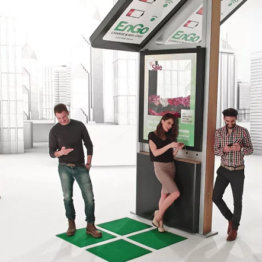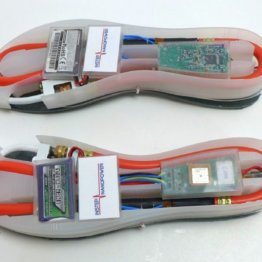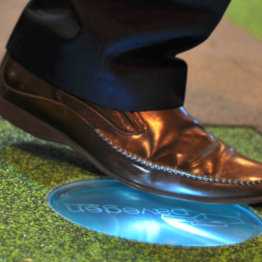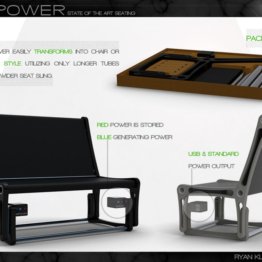KINETIC PIEZOELECTRIC GENERATION
Harvesting Wasted Energy from the Everyday World
The term “energy harvesting” refers to the generation of energy from sources such as ambient temperature, vibration or air flow.
Converting the available energy from the environment allows a self-sufficient energy supply for small electric loads such as sensors or radio transmitters.
Kinetic energy can be converted into electrical energy by means of the piezoelectric effect: Piezo elements convert the kinetic energy from vibrations or shocks into electrical energy.
Using suitable electronics, this effect can be used for creating a self-sufficient energy supply system. This is of particular interest whenever a power supply via cable is not possible and the use of batteries and the associated maintenance expenditure are not desired.
The power produced through kinetic energy generation can be used to light LEDs, send radio waves, and produce sound. Practical applications are emerging, including power-generating flooring, with arrows that light up as pedestrians walk on the surface. While the flooring cannot be used to power larger light fixtures, it reduces the environmental burden of power generation and eliminates the need to replace building and security lighting.
Applications
One of the few technologies used is piezoelectric flooring.
What is Piezoelectric Flooring and How does it Work?
Piezoelectricity is electrical energy harvested from mechanical pressure such as walking motion. When pressure is applied on an object, a negative charge is created on the expanded side and a positive charge is created on the compressed side. As this pressure is relieved, electric current flows across the substance.
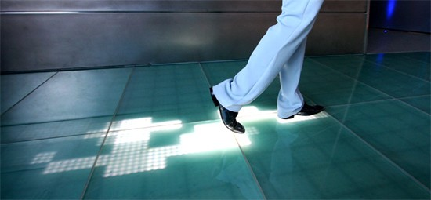
PIEZOELECTRIC FLOOR TILES
Piezoelectric floors are designed to capture the wasted energy and resources, and store or redistribute them where they are needed. Energy is generated when a person steps on tiles that feature piezoelectric attributes. The amount of energy generated depends upon the weight of the person, maximum deflection, and type of movement. This kinetic energy is converted into electricity.
Piezoelectric flooring is ideal for places that receive heavy foot traffic. It can be installed at tourist attractions, town halls, schools, stadiums, or dance floors. In fact, the firm Energy Floors has a product called the Sustainable Dance Floor especially designed for clubs. Piezoelectric flooring can also be installed in other busy places such as subway stations, airports, universities, and malls.
Given that the technology of using floor tiles to generate electricity using mechanical pressure is relatively new, companies in this sector are still looking for venture capitalists and investors. It would also be interesting to see if automotive companies develop an interest in this technology to harvest electricity from the movement of cars and other vehicles.
More Kinetic Energy Applications…


